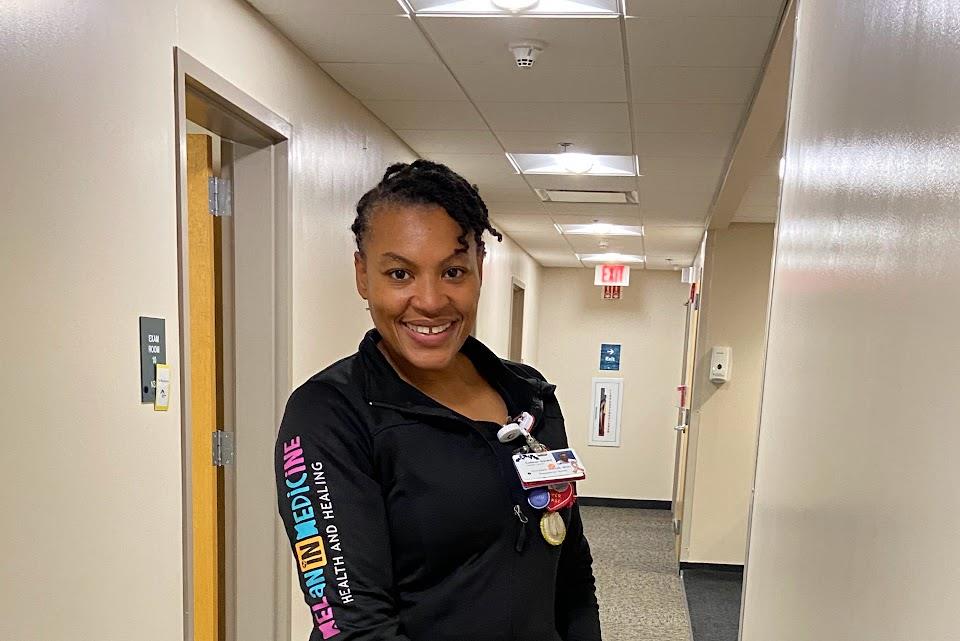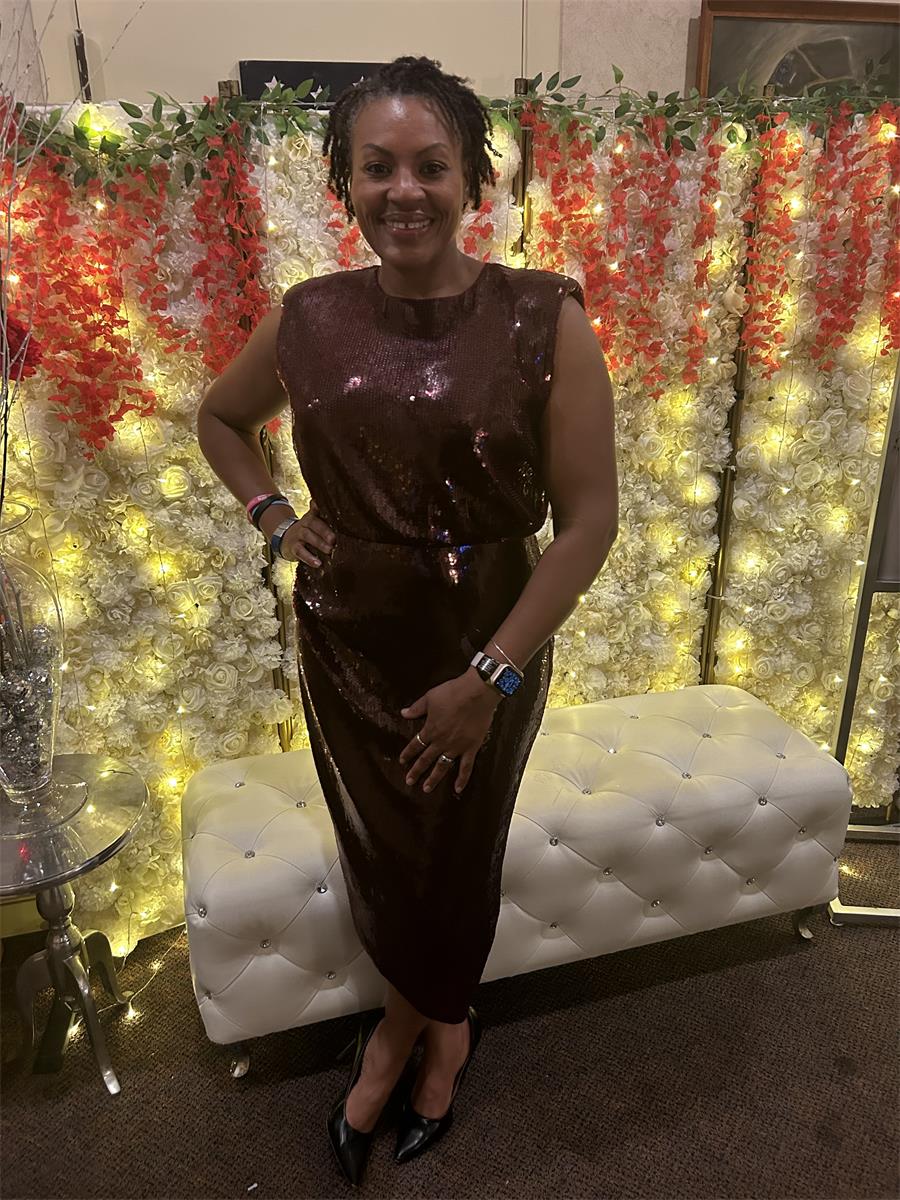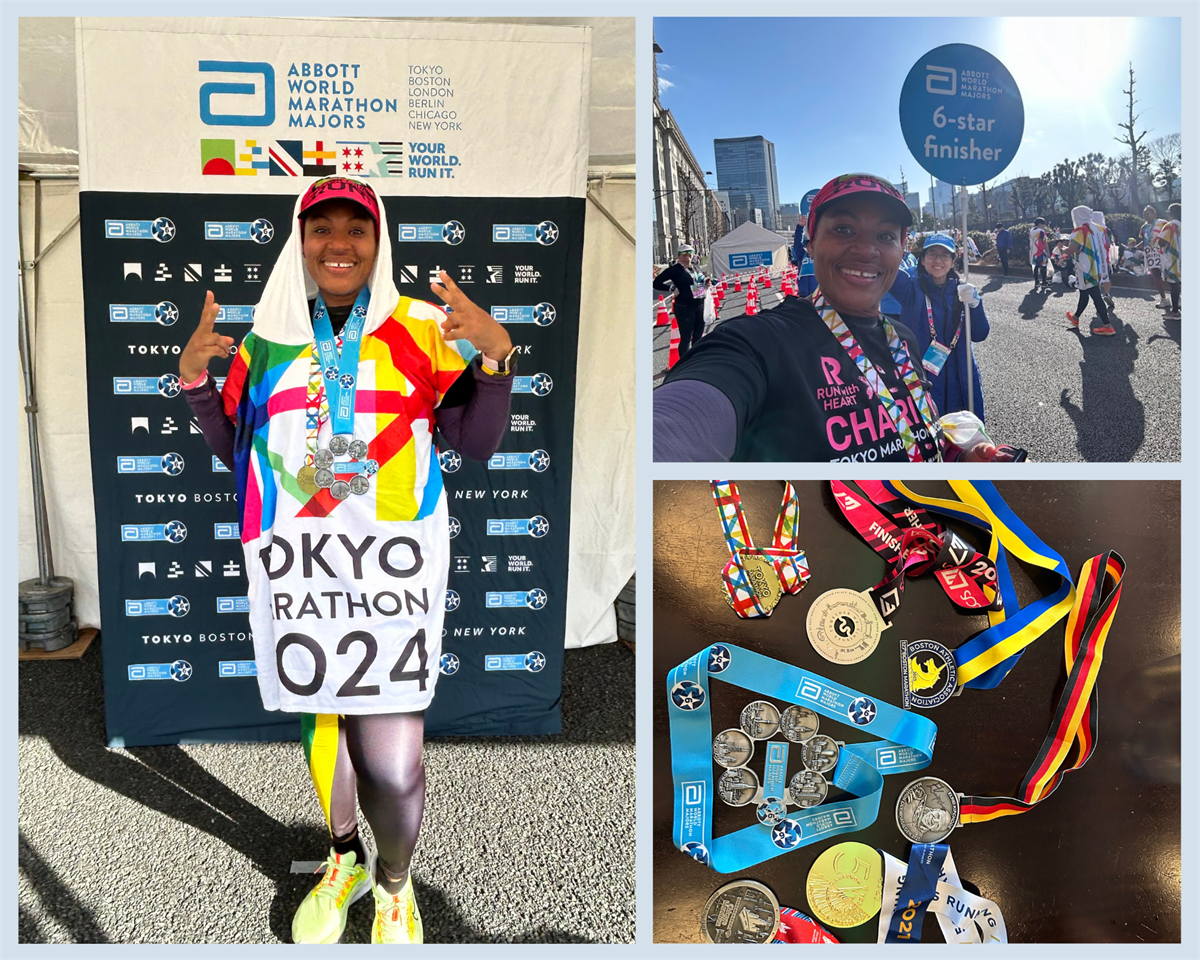When patients receive a call from Chrylann Barrett, they may not expect a transformative conversation—but many of them get exactly that. As a Complex Care Manager and registered nurse at Codman Square Health Center in Massachusetts, Barrett brings a rare mix of clinical insight, public health strategy, and deep human empathy to her work.
“I can’t fix everything,” she says, “but I can provide a safe space for someone to feel heard, validated, and supported. That’s where healing begins.”
Barrett, a CHES® and MPH graduate, didn’t always imagine herself in this hybrid role. She became an RN just before the onset of the COVID-19 pandemic and quickly found herself on the front lines. “Nursing school didn’t prepare us for the pandemic,” she reflects. “We had to figure it out in real time, and for communities of color—already facing mistrust in the medical system—the barriers were even greater.”
Working in a predominantly BIPOC community, Barrett and her team didn’t wait for patients to come to them. “We brought COVID tests and vaccines directly into neighborhoods, senior housing buildings, and even local parks,” she says. “People needed to see someone they recognized and trusted—someone who looked like them—administering care.”
From RN to CHES®: Building a Dual Lens for Patient Empowerment
While working through the chaos of early pandemic nursing, Barrett pursued an MPH degree from the Massachusetts College of Pharmacy and Health Sciences. It was there that Dr. Kerry Griffin, a passionate MCHES® credential-holder, introduced her to CHES® certification.
“She inspired me,” Barrett recalls. “The way she valued the credential and taught us through a public health lens—it made sense. I wanted to elevate my skills, expand my scope, and bring more intention to patient education.”
 That decision has paid off. In her current role, Barrett combines her clinical knowledge with health education best practices, offering support to individuals managing chronic illnesses, recovering from substance use, or re-entering the community after ER visits.
That decision has paid off. In her current role, Barrett combines her clinical knowledge with health education best practices, offering support to individuals managing chronic illnesses, recovering from substance use, or re-entering the community after ER visits.
“Most of my patients are dealing with diabetes, hypertension, or both,” she says. “And many are tired, both physically and emotionally. So, I meet them where they are. Sometimes that means spending an hour on the phone talking about their pain and through their pain. Sometimes it means talking about cars instead of carbs, because that’s what they need at that moment.”
She believes the CHES® credential helps reinforce that flexibility. “Health education isn’t just about facts; it’s about connection. The CHES® framework taught me how to educate, not just inform—and that makes all the difference.”
Day-to-Day: Teaching, Listening, Navigating
Barrett’s days often revolve around telehealth triage, care coordination, and in-person
teaching moments. Whether she’s administering vaccines or walking a patient through label reading and medication adherence, her focus is on sustainable behavior change.

“I do a lot of teaching,” she explains. “Sometimes it’s something small—like telling someone not to apply Tiger Balm pain relief ointment right after a hot shower. But that nugget of knowledge can save someone from unnecessary pain. It builds trust. And that trust makes space for bigger conversations down the line.”
Barrett also co-leads a 12-week diabetes education program at her health center, integrating services from podiatry, eye care, nutrition, and pharmacy. “We try to show our patients how all these systems are connected,” she says. “And that managing a chronic condition isn’t just about willpower—it’s about support, access, and education.”
But Barrett’s role goes beyond checklists and care plans. She frequently finds herself pivoting based on what a patient truly needs in the moment. One recent interaction highlights just how far a simple conversation can go.
She had called a patient following an accident to check in on her recovery. Initially, the woman was frustrated, curt, and distracted, she recalled. “But once she realized I was genuinely there to help, she started to open up,” Barrett says. What followed wasn’t just a health update. It was a deep, personal conversation about insurance, vehicle replacement, and even whether an electric car might be a good next step now that she needed to purchase a new vehicle due to the accident.
“All these pieces make a person whole and is part of the healing and recovery process. “I didn’t have all the answers,” Barrett laughs, “but I gave her space to talk through her decisions. By the end of the call, she wasn’t focused on her pain anymore—she was laughing and thinking ahead. That hour created a bond, and that trust makes every future interaction a lot more meaningful.”
It’s moments like this that illustrate the heart of her role: not just delivering information, but helping patients feel seen, supported, and in control of their health journeys.
Running Toward Representation: A Six-Star Story
Outside of work, Barrett is equally committed to movement and representation in her community—both physical and social. In March 2024, she completed the Abbott World Marathon Majors, earning her sixth star after races in Boston, Chicago, New York, Tokyo, London, and Berlin.
“It started in 2016 with a $35 marathon,” she laughs. “No training, no idea what I was doing, really. But I finished.” In 2020 a chance encounter with a member of Black Girls Run!, a national organization empowering Black women through running, led to her 1st virtual Boston marathon in 2021. “This was when I really caught the bug!” she recalls.
Through charity bibs and sheer determination, Barrett eventually tackled six world-class races. In 2023, Barrett would complete the Boston (4/17/23) and London Marathons (4/23/23) one week apart.

“We’re underrepresented in this space,” she says. “As a Black woman, an immigrant, and a runner, I didn’t always feel like I belonged. But we’re breaking barriers. And I want young girls who look like me to know: this space is for you, too.”
Completing her first Ironman on June 8th, Barret had only dreamt of being in this level of competition, and in another space where representation matters. She’s now training for the Sydney Marathon in August, fundraising along the way and continuing to advocate for diversity and inclusion in endurance sports.
“Running is my self-care. It reminds me of what my body is capable of. And I carry that message back to my patients—take care of yourself, and your body will take care of you.”
Advice for Emerging Professionals
To those starting their careers in health education or looking to pivot into healthcare, Barrett offers this:
“Lead with compassion. Don’t worry about having all the answers. Focus on building relationships. Patients won’t always do what you suggest—but if they trust you, they’ll listen. That trust is your most powerful tool.” Barrett credits her success and compassion to having a strong connection to God and living a life dedicated to serving others.
And when it comes to CHES®? “Absolutely pursue it,” she says. “Even if you don’t think of yourself as an expert yet. The knowledge and credibility it gives you are invaluable—and the learning doesn’t stop after the exam. That’s the beauty of it.”